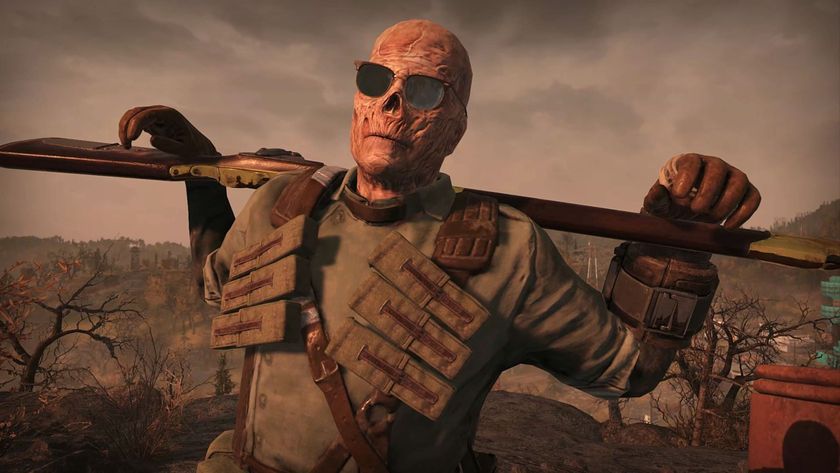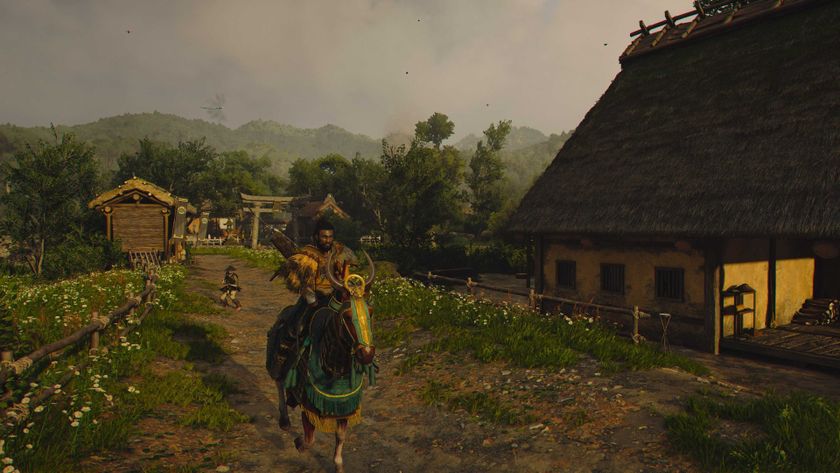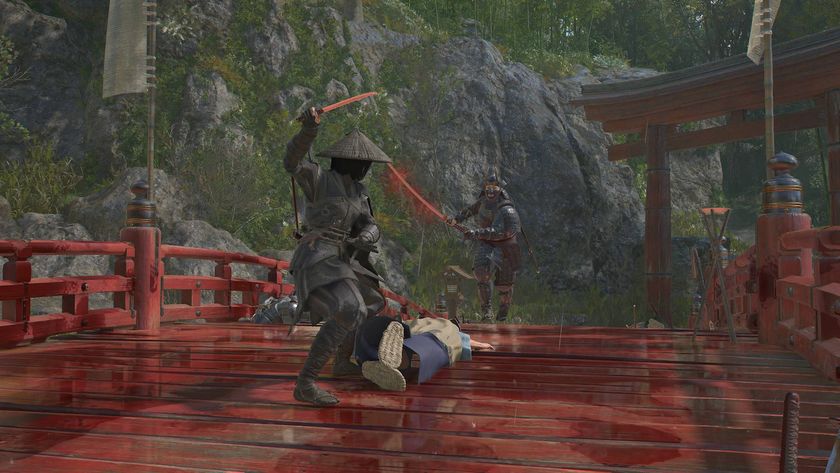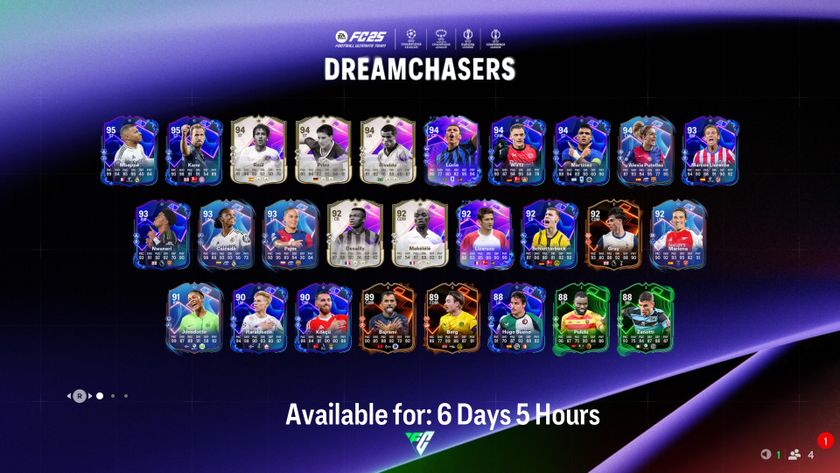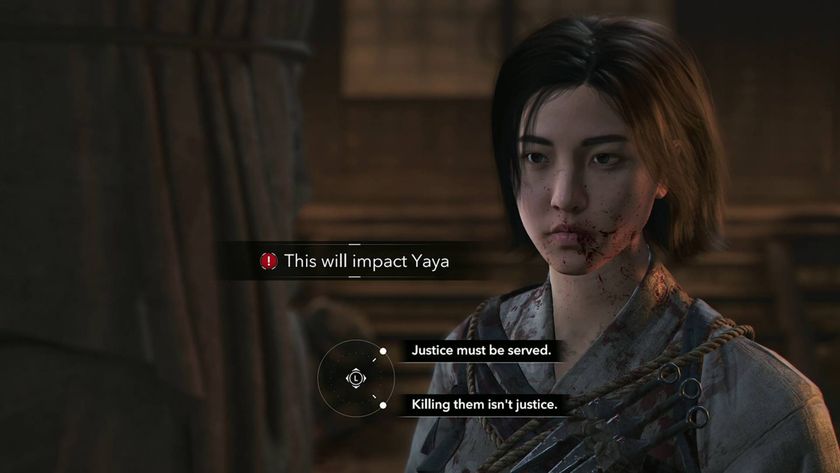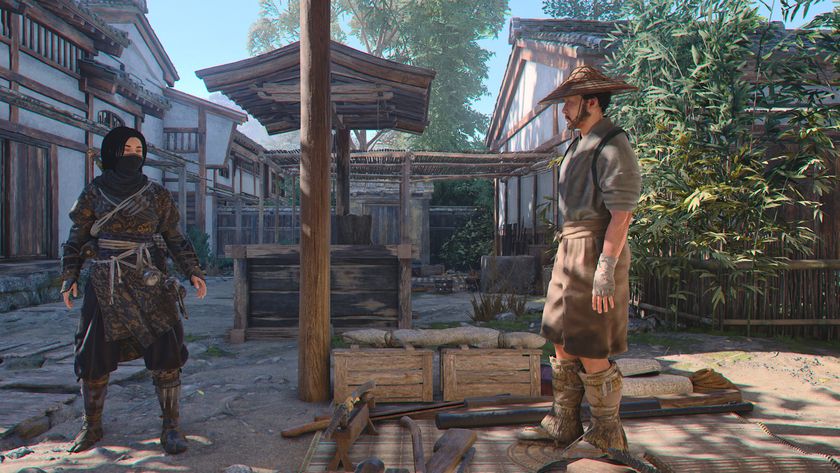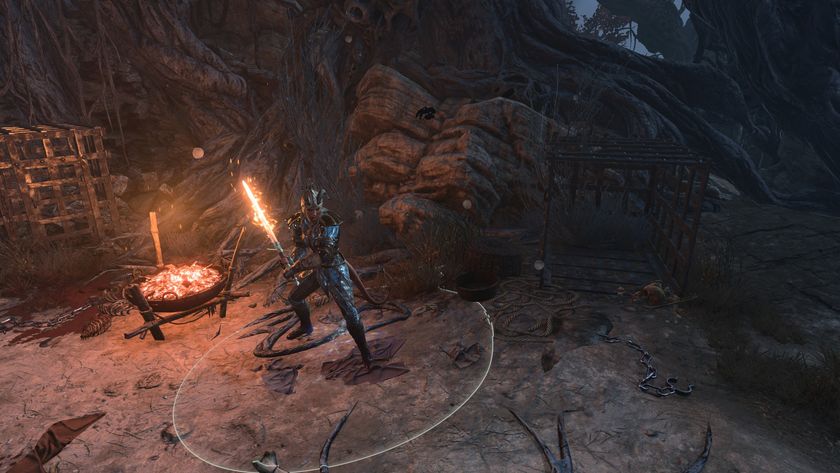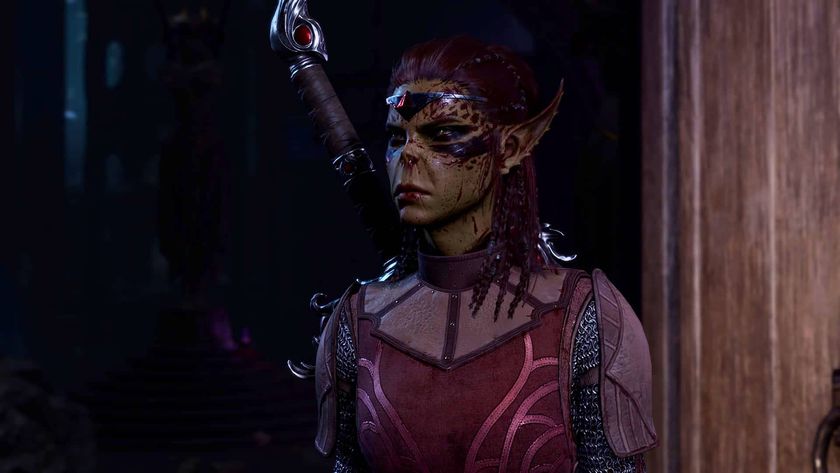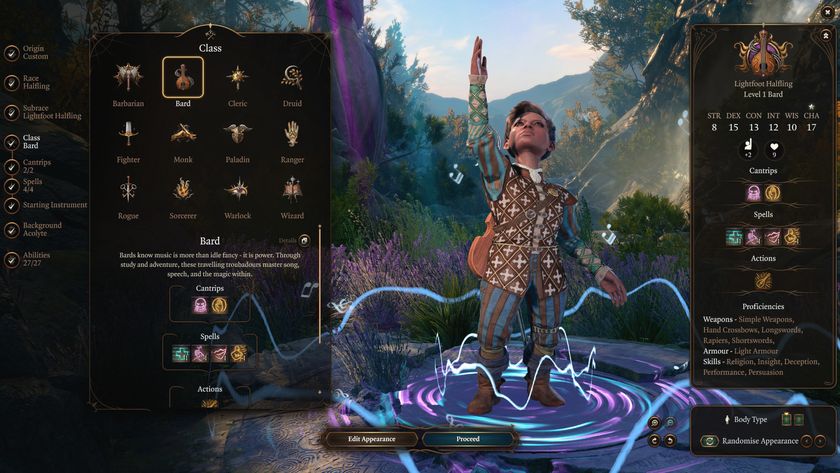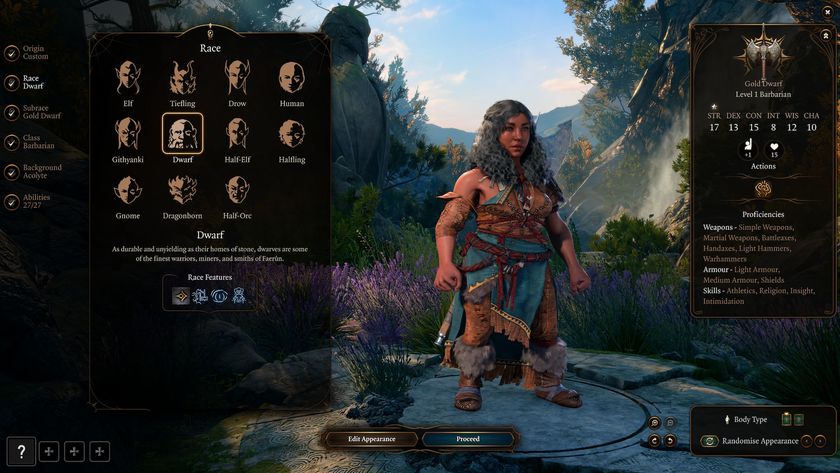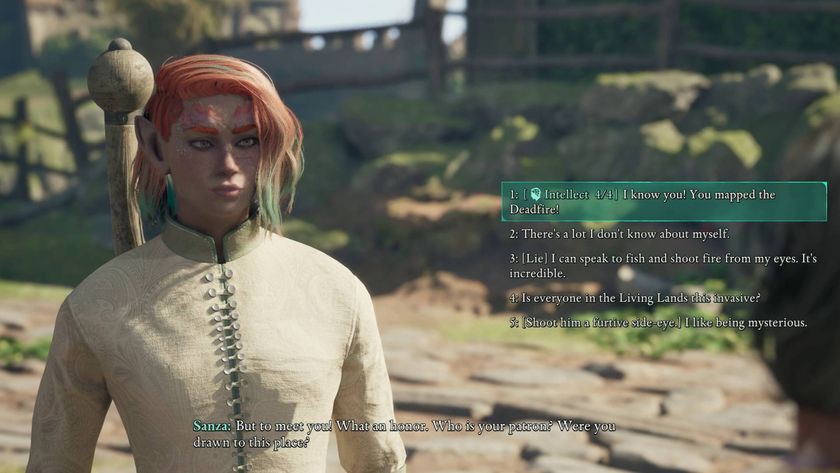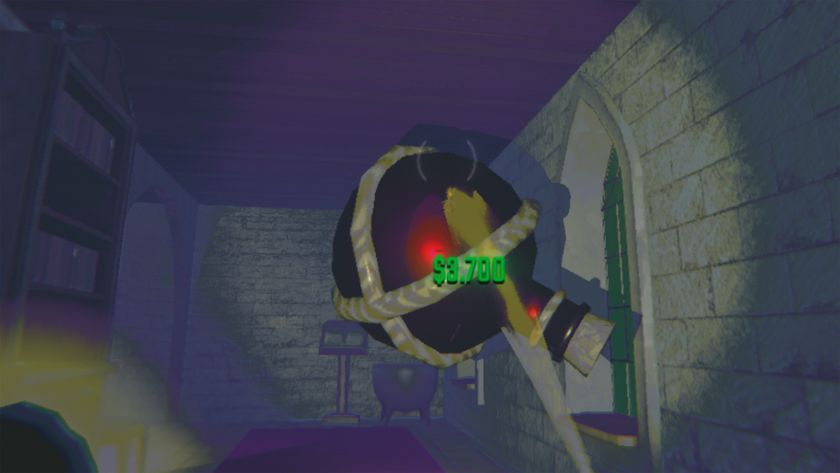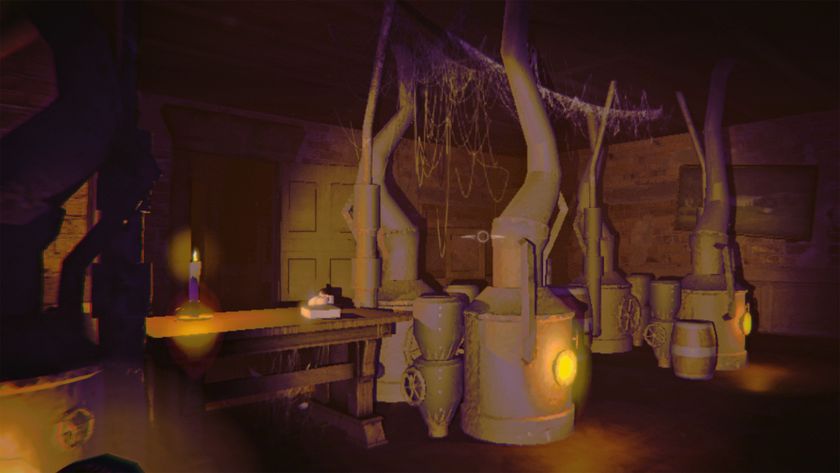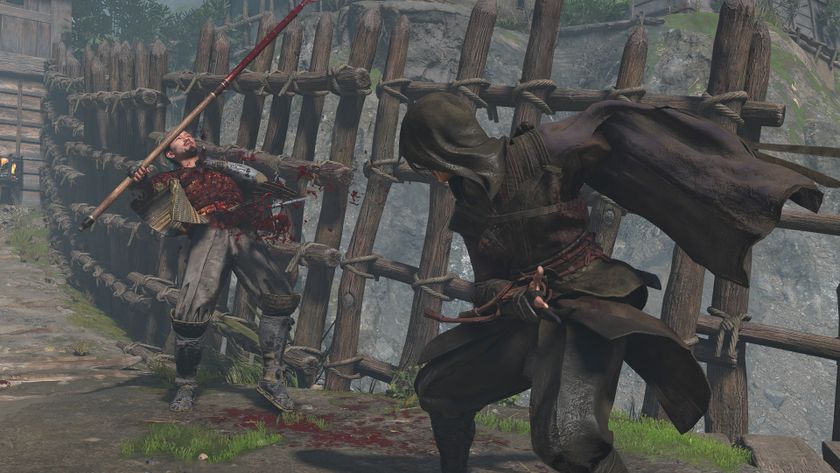The best Baldur's Gate 3 skills, proficiencies, and how they work
The best skill proficiencies you can get in BG3, and how the skill system works

Your Baldur's Gate 3 skills and proficiencies determine non-magical abilities and... well, your skill set, a range of developed qualities that you can use to interact with the world around you without having to attack, cast or anything else. Certain skills often end up being more useful than others, especially depending on the class or strategy you make the most use out of. A classic Rogue, for example, would be well advised to invest in Stealth and Sleight of Hand.
Proficiencies, on the other hand, can also cover the equipment, weapons and armor that your character is trained with and knows how to use. It's a complex system, so I'll cover it in detail below: here's what skills are in BG3, how to use them, and whether or not they can be reshuffled during your adventure.
Recent updates
This Baldur's Gate 3 skills guide was updated on 7 November, and despite having no new information to add, everything here has been checked to make sure it is still accurate, which it is.
Best skills in Baldur's Gate 3

The best skills in Baldur's Gate 3 are highly varied and dependent on context, as ultimately you want skills that not only complement your preferred playstyle, but also cover areas that the rest of your Baldur's Gate 3 party doesn't provide. Here are the top five skills we recommend you don't leave the campsite without.
- Perception: Perception will help you spot traps, secrets, treasure and things you otherwise wouldn't notice at all. In a dangerous dungeon full of hidden perils, a good perception score can be the difference between living and dying.
- Stealth: Getting around without being spotted can get you a surprise round in combat when you ambush foes, or help you avoid fights you're ill-equipped for altogether. A massive advantage in either case.
- Persuasion: Being able to talk your way through situations is a real superpower. You can calm dangers and boost rewards with high charm, and it's a little more common (at least by our experience) than its sibling skill, Deception, as well as usually having less risk around getting it wrong.
- Athletics: Athletics is something of a silent hero, as aside from certain context challenges, it also determines your chance of success in the overpowered "Shove" ability. You also use your Athletics score to resist being shoved, unless your Acrobatics is higher, in which case you use that.
- Sleight of Hand: Sleight of Hand is all about manual dexterity, and covers everything from disarming traps to lockpicking to pickpocketing to simple coin tricks. If you're making a rogue or just a character with an aptitude for stealing, you'll want to give them this - plus while Perception will help you spot traps, it's Sleight of Hand that'll help you disarm and shut them down safely.
How Skills and Proficiencies work in Baldur's Gate 3

Skills and Proficiencies represent most of what your character is capable of on a moment-to-moment level in Baldur's Gate 3. Basically, every time you want to do an action, the game does the following calculation:
- D20 roll + (ability modifier) + (Proficiency bonus IF proficient) + (Miscellaneous bonuses, if any)
So for example, let's say your Bard wants to lie their way into a fancy party by saying they're on the guest list - no, really, check again, I'm totally on there! This is a Deception check, and Deception is based on the Charisma ability, which they have +3 for. This Bard is proficient in Deception, so they get a total of +5 to the roll, using the following equation.
- D20 roll + Charisma modifier (3) + Proficiency bonus (2)
The Proficiency bonus is +2 here, but that can change. Your character starts with a +2 Proficiency bonus at level 1, which simply gets added to rolls for any skill they're proficient in. That Proficiency bonus gets higher by 1 every 4 levels, all the way to the Baldur's Gate 3 level cap.
You can still roll for any skills you're not proficient in, you just won't get that Proficiency bonus to help boost your chances of success. Certain Baldur's Gate 3 classes, such as the Rogue or Bard, can also get abilities that help - such as the Bard getting half their Proficiency bonus in all skills they're not proficient in, as a "Jack of All Trades". And of course, depending on context circumstances, you might occasionally get the addition of the Baldur's Gate 3 advantage and disadvantage mechanics.
Finally, certain equipment requires Proficiency to make the most out of it. Aside from Proficiency bonuses being added to Baldur's Gate 3 weapons attacks to increase your chance to hit, Armor also requires proficiency when worn, otherwise you risk taking disadvantage on certain actions and being unable to cast spells.
How to get more Skills and Proficiencies in Baldur's Gate 3

Players get a certain amount of Skill Proficiencies in Baldur's Gate 3 at character creation - your class and the various Baldur's Gate 3 backgrounds will both provide some. Your class allows you to pick a few Skills from a list of approved options during character creation, with the actual list and the amount you can pick determined by your class itself (for example, Barbarians only get to pick 2 Proficiencies from a short list of very specific Skills). After that, your background will provide a couple more Skill Proficiencies, and some of the Baldur's Gate 3 races have Skill Proficiencies as racial abilities, such as Elves having Perception as a default. After that, there are two ways to obtain new Skills:
- Feats: Classes can pick new Feats at levels 4, 8 and 12. The Skilled Feat simply allows you to choose three Skills of your choice, while others unlock certain Skills and equipment Proficiencies.
- Class and Subclass abilities: Certain classes unlock new Skill Proficiencies along the way, such as the Bard gaining a range of equipment Proficiencies if they enter the College of Valor Subclass, or the Life Cleric learning how to use Heavy Armor.
© 12DOVE. Not to be reproduced without permission
Sign up to the 12DOVE Newsletter
Weekly digests, tales from the communities you love, and more

Joel Franey is a writer, journalist, podcaster and raconteur with a Masters from Sussex University, none of which has actually equipped him for anything in real life. As a result he chooses to spend most of his time playing video games, reading old books and ingesting chemically-risky levels of caffeine. He is a firm believer that the vast majority of games would be improved by adding a grappling hook, and if they already have one, they should probably add another just to be safe. You can find old work of his at USgamer, Gfinity, Eurogamer and more besides.
- Jasmine Gould-WilsonStaff Writer, 12DOVE
